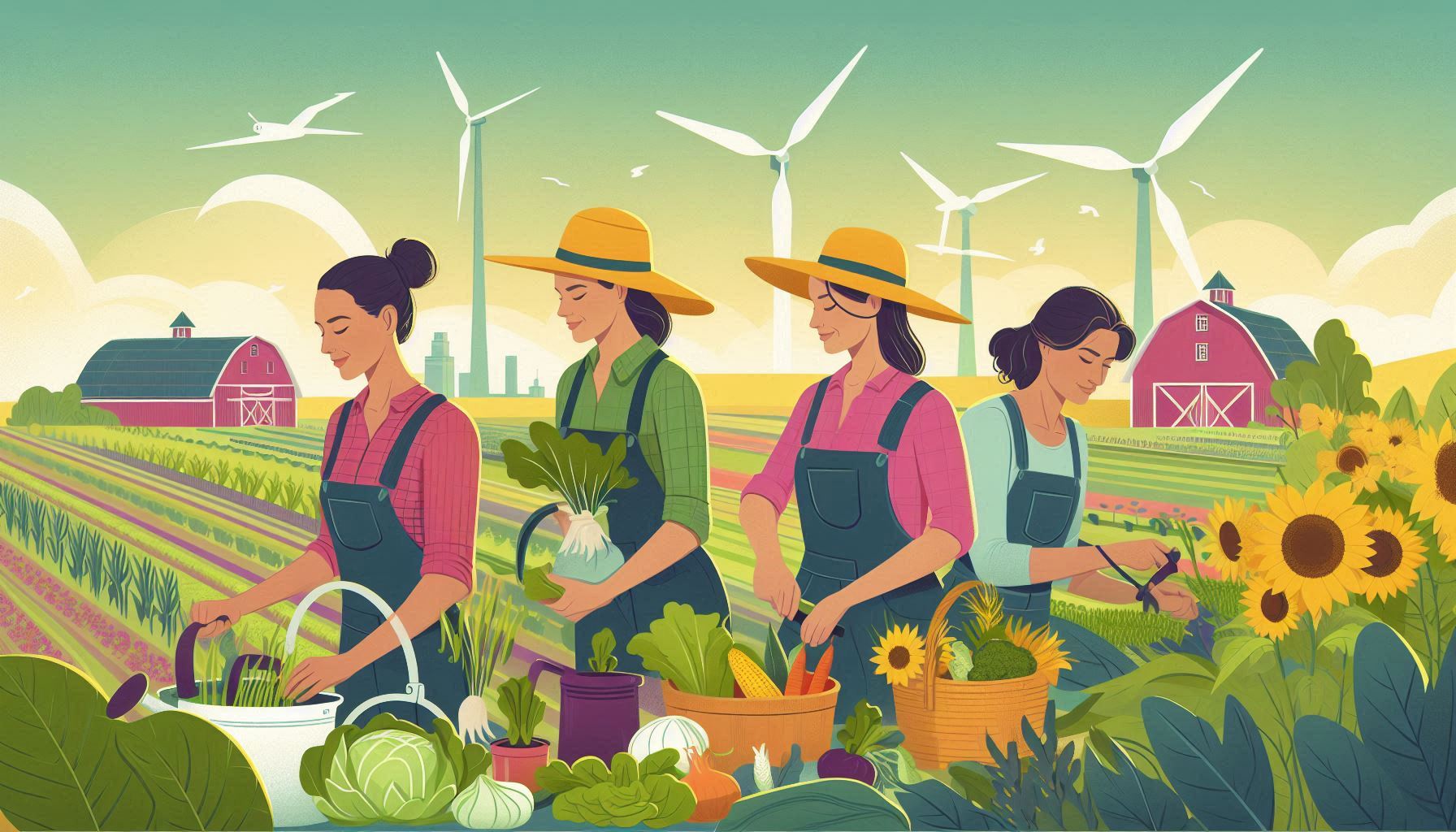Women have played a crucial role in agriculture throughout history, yet their contributions often go unrecognized. As the backbone of many farming communities, women are involved in various agricultural activities, from planting and harvesting to managing finances and marketing produce. This article explores the significant contributions of women in agriculture, the challenges they face, and the importance of empowering them for sustainable agricultural development.
The Contributions of Women in Agriculture
1. Labor Force Participation
Women constitute a substantial portion of the agricultural labor force globally. According to the Food and Agriculture Organization (FAO), women make up about 43% of the agricultural labor force in developing countries. They are involved in various tasks, including planting, weeding, harvesting, and livestock management. Their labor is essential for food production and rural development.
2. Knowledge and Innovation
Women bring unique knowledge and skills to agriculture, often passed down through generations. They possess valuable insights into local farming practices, crop varieties, and sustainable methods. Women are also increasingly adopting innovative practices, such as organic farming and agroecology, contributing to food security and environmental sustainability.
3. Economic Contributions
Women in agriculture contribute significantly to household incomes and national economies. They engage in various agricultural activities, including crop production, livestock rearing, and value-added processing. By participating in these activities, women help improve their families’ livelihoods and contribute to local and national economies.
4. Community Leadership
Women often take on leadership roles within their communities, advocating for agricultural policies that benefit their families and neighbors. They participate in cooperatives, farmer groups, and community organizations, promoting collective action and resource sharing. Their leadership fosters collaboration and strengthens community resilience.
Challenges Faced by Women in Agriculture
Despite their significant contributions, women in agriculture face numerous challenges that hinder their potential.
1. Limited Access to Resources
Women often have limited access to essential resources such as land, credit, and agricultural inputs. In many cultures, land ownership is predominantly male-dominated, restricting women’s ability to own and manage land. This lack of access to resources limits their productivity and economic opportunities.
2. Gender Discrimination
Gender discrimination remains a significant barrier for women in agriculture. Societal norms and cultural practices often prioritize men’s roles in farming, leading to unequal treatment and opportunities. Women may face challenges in accessing training, information, and markets due to these discriminatory practices.
3. Lack of Education and Training
Education and training are crucial for improving agricultural practices and productivity. However, many women lack access to education and training programs, limiting their ability to adopt new technologies and practices. This knowledge gap can hinder their productivity and economic empowerment.
4. Work-Life Balance
Women in agriculture often juggle multiple responsibilities, including household chores, childcare, and farming activities. This dual burden can lead to physical and mental exhaustion, affecting their overall well-being and productivity. The lack of support systems and infrastructure further exacerbates this challenge.
Empowering Women in Agriculture
Empowering women in agriculture is essential for achieving sustainable development and food security. Here are some strategies to support women in farming:
1. Promoting Land Rights
Ensuring women’s access to land and property rights is crucial for their empowerment. Legal reforms and policies that promote gender equality in land ownership can help women secure their livelihoods and improve their economic status.
2. Providing Access to Resources
Governments and organizations should work to provide women with access to credit, agricultural inputs, and technology. Financial support and resources can help women enhance their productivity and income.
3. Enhancing Education and Training
Investing in education and training programs for women in agriculture is vital. Providing access to agricultural extension services, workshops, and training can equip women with the knowledge and skills needed to improve their farming practices.
4. Supporting Women’s Networks
Encouraging the formation of women’s cooperatives and networks can foster collaboration and support among women farmers. These networks can provide a platform for sharing knowledge, resources, and experiences, empowering women to advocate for their rights and interests.
Conclusion
Women play a vital role in agriculture, contributing to food production, economic development, and community resilience. However, they face numerous challenges that hinder their potential. By recognizing and addressing these challenges, we can empower women in agriculture, leading to sustainable development and improved food security. It is essential to promote gender equality and support women’s contributions to agriculture for a more equitable and sustainable future.
SEO Considerations
- Keywords: Women in agriculture, contributions of women in farming, challenges faced by women in agriculture, empowering women in agriculture, gender equality in farming.
- Meta Description: Explore the vital contributions of women in agriculture and the challenges they face. Learn how empowering women can lead to sustainable agricultural development.
- Headings: Use H1 for the title, H2 for main sections, and H3 for sub-sections to improve readability and SEO.
- Internal Links: Consider linking to related articles on your blog about sustainable farming practices, gender equality, or agricultural innovations.
- External Links: Reference credible sources such as the FAO or relevant research studies to enhance the article’s authority.
This article can be further customized or expanded as needed. Let me know if you would like to make any adjustments!

